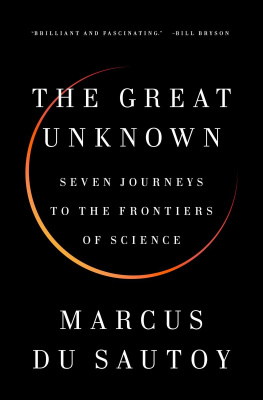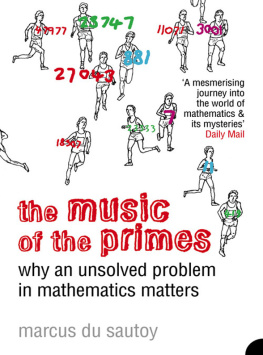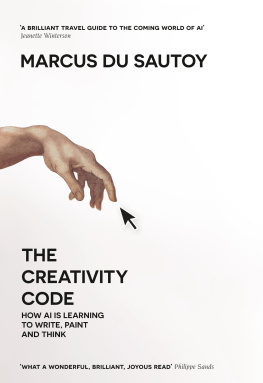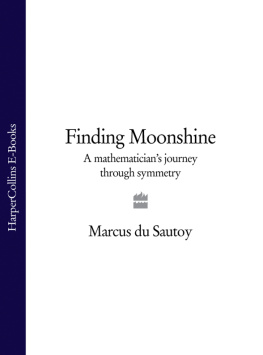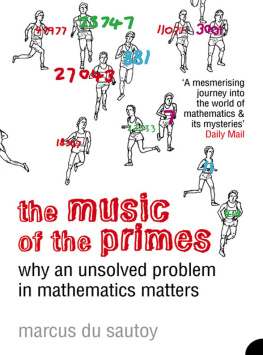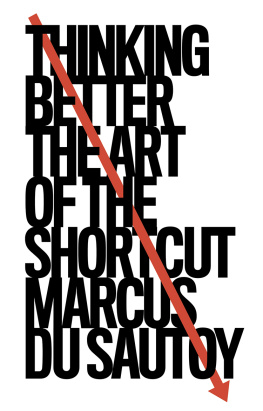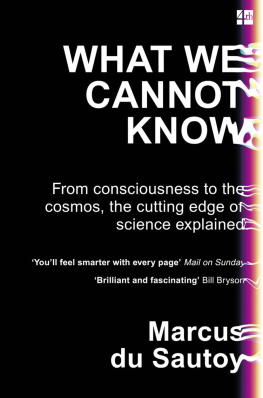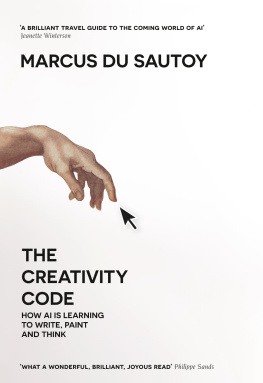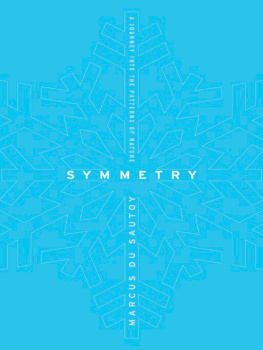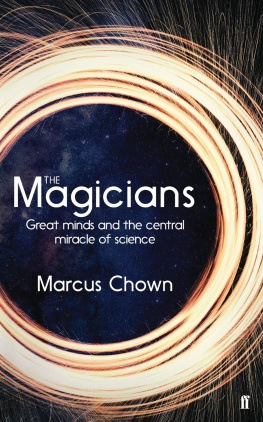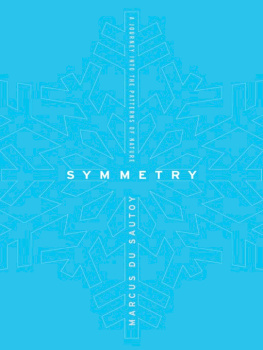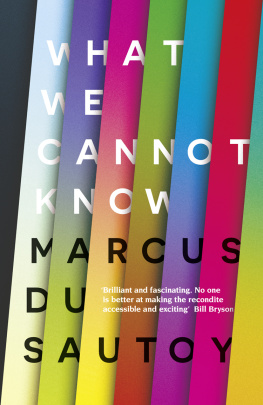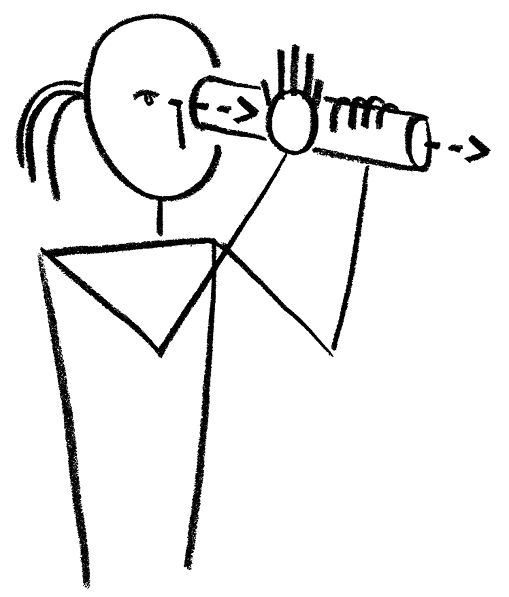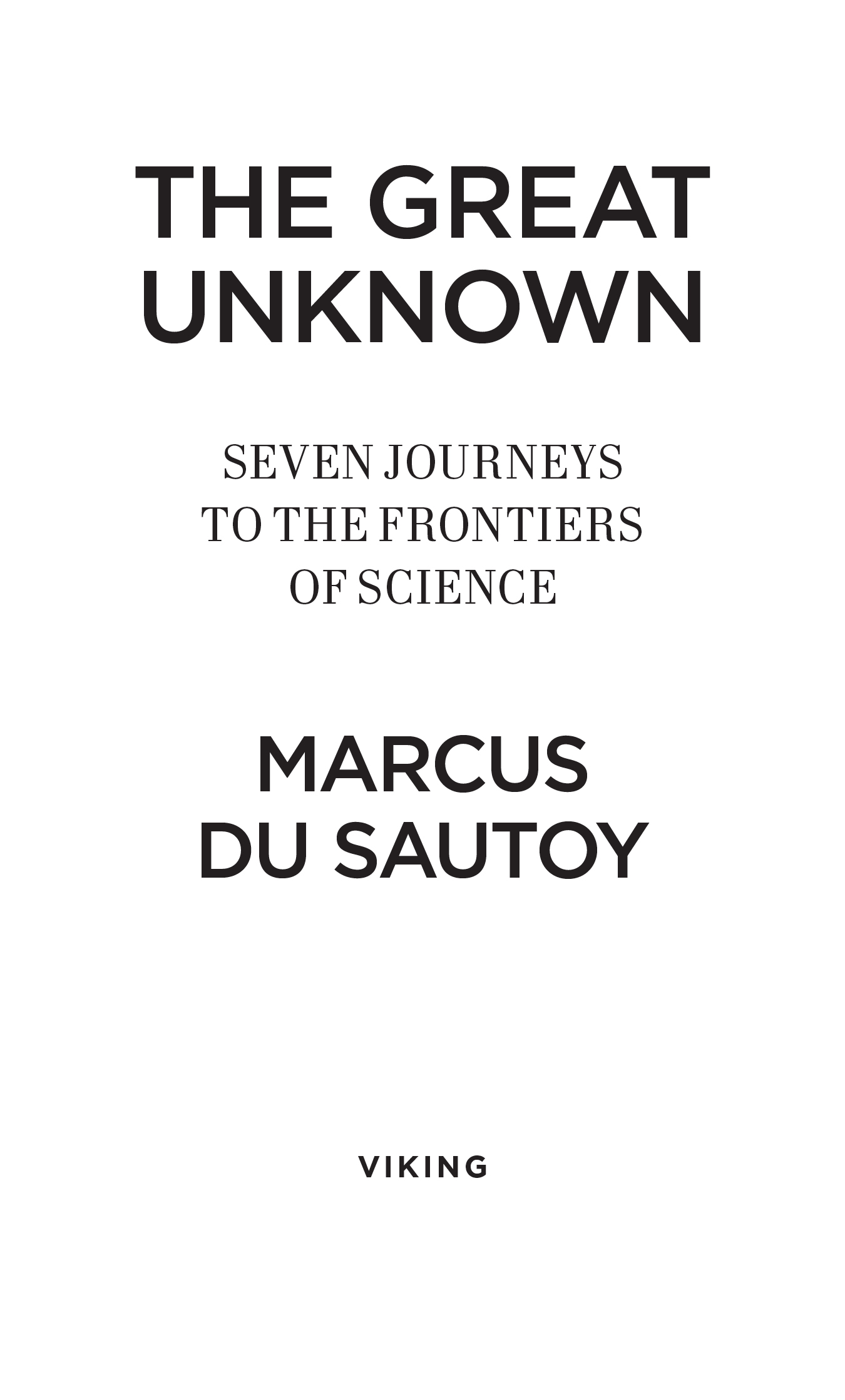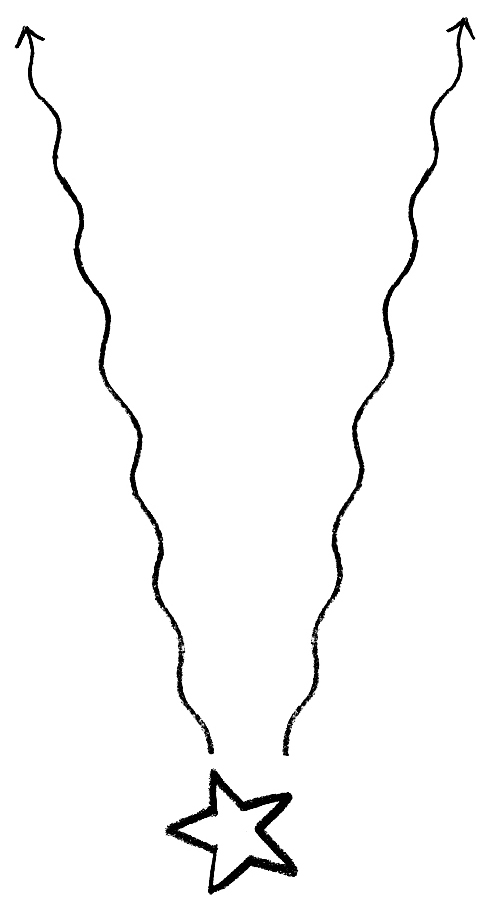ALSO BY MARCUS DU SAUTOY
The Music of the Primes:
Why an Unsolved Problem in Mathematics Matters
The Numbers Mystery:
A Mathematical Odyssey through Everyday Life
Symmetry: A Journey into the Patterns of Nature
VIKING
An imprint of Penguin Random House LLC
375 Hudson Street
New York, New York 10014
penguin.com
Copyright 2016 by Marcus du Sautoy
Penguin supports copyright. Copyright fuels creativity, encourages diverse voices, promotes free speech, and creates a vibrant culture. Thank you for buying an authorized edition of this book and for complying with copyright laws by not reproducing, scanning, or distributing any part of it in any form without permission. You are supporting writers and allowing Penguin to continue to publish books for every reader.
First published in Great Britain as What We Cannot Know by 4th Estate, an imprint of HarperCollinsPublishers
Library of Congress Cataloging-in-Publication Data
Names: Du Sautoy, Marcus, author.
Title: The great unknown : seven journeys to the frontiers of science / Marcus du Sautoy.
Description: New York : Viking, 2017. | Includes bibliographical references and index.
Identifiers: LCCN 2016056835 (print) | LCCN 2017004682 (ebook) | ISBN 9780735221802 (hardcover) | ISBN 9780735221819 (ebook)
Subjects: LCSH: Discoveries in science. | Knowledge, Theory of.
Classification: LCC Q180.55.D57 D85 2017 (print) | LCC Q180.55.D57 (ebook) | DDC 500dc23
LC record available at https://lccn.loc.gov/2016056835
Version_2
To my parents,
who started me on my journey
to the edge of knowledge
CONTENTS
0
Everyone by nature desires to know.
Aristotle, Metaphysics
E VERY WEEK , headlines announce new breakthroughs in our understanding of the universe, new technologies that will transform our environment, new medical advances that will extend our lives. Science is giving us unprecedented insights into some of the big questions that have challenged humanity ever since weve been able to formulate them. Where did we come from? What is the ultimate destiny of the universe? What are the building blocks of the physical world? How does a collection of cells become conscious?
In the last ten years alone weve landed a spaceship on a comet, built robots that can create their own language, used stem cells to repair the pancreas of diabetic patients, discovered how to use the power of thought to manipulate a robotic arm, and sequenced the DNA of a 50,000-year-old cave girl. Science magazines are bursting with the latest breakthroughs emerging from the worlds laboratories. We know so much.
Science is our best weapon in our fight against fate. Instead of giving in to the ravages of disease and natural disaster, we have created vaccines to combat deadly viruses like polio and Ebola. As the worlds population continues to escalate, scientific advances provide the best hope of feeding the 9.6 billion people who are projected to be alive in 2050. Science warns us about the deadly impact we are having on our environment and gives us the chance to do something about it before it is too late. An asteroid might have wiped out the dinosaurs, but science is our best shield against any future direct hits. In the human races constant battle with death, science is its best ally.
Science is king not only when it comes to our fight for survival but also in improving our quality of life. We are able to communicate with friends and family across vast distances. We have created virtual worlds to which we can escape in our leisure time and we can re-create in our living rooms the great performances of Mozart, Miles, and Metallica at the press of a button.
The desire to know is programmed into the human psyche. Early humans with a thirst for knowledge were the ones who survived to transform their environment. Those not driven by that craving were left behind. Evolution has favored the mind that wants to know the secrets of how the universe works. The adrenaline rush that accompanies the discovery of new knowledge is natures way of telling us that the desire to know is as important as the drive to reproduce. As Aristotle suggested in the opening line of Metaphysics, understanding how the world works is a basic human need.
When I was a schoolkid, science very quickly captivated me. I fell in love with its extraordinary power to reveal the workings of the universe. The fantastic stories that my science teachers told me seemed even more fanciful than the fiction Id been reading at home. I persuaded my parents to buy me a subscription to New Scientist and devoured Scientific American in our local library. I hogged the television each week to watch episodes of Horizon and Tomorrows World. I was enthralled by Jacob Bronowskis Ascent of Man, Carl Sagans Cosmos, and Jonathan Millers Body in Question. Every Christmas, the Royal Institution Christmas Lectures provided a dollop of science alongside our family turkey. My stocking was stuffed with books by George Gamow and Richard Feynman. It was a heady time, with new breakthroughs announced each week.
Alongside these stories of discovery, I began to get fired up by the untold tales. What we knew lay in the past but we didnt yet know the future, my future. I became obsessed with the puzzle books of Martin Gardner that my math teacher gave me. The excitement of wrestling with a conundrum and the sudden release of euphoria as I cracked each puzzle got me addicted to the drug of discovery. Those puzzles were my training ground for the greater challenge of tackling questions that didnt have an answer in the back of the book. It was the unanswered questions, the mathematical mysteries and scientific puzzles that no one had cracked, that would become the fuel for my life as a scientist.
It is quite extraordinary how much more we have understood about the universe even in the half century that Ive been alive. Technology has extended our senses so we can see things that were beyond the conception of the scientists who excited me as a kid. A new range of telescopes that look out at the night sky enabled us to discover planets like Earth that could be home to intelligent life. They have revealed the amazing fact that three quarters of the way into the lifetime of our universe, its expansion started to accelerate. I remember reading as a kid that we were in for a big crunch, but now it seems that we have a completely different future awaiting us.
Particle colliders like the Large Hadron Collider at CERN have allowed us to penetrate the inner workings of matter itself, revealing new particleslike the top quark discovered in 1994 and the Higgs boson discovered in 2012that were bits of speculative mathematics when I was reading my New Scientist at school. And since the early 90s the fMRI scanner has allowed us to look inside the brain and discover things that were not even considered part of the remit of science when I was a kid back in the 70s. The brain was the preserve of philosophers and theologians, but today technology can reveal when you are thinking about Jennifer Aniston or predict what you are going to do next even before you know it yourself.

